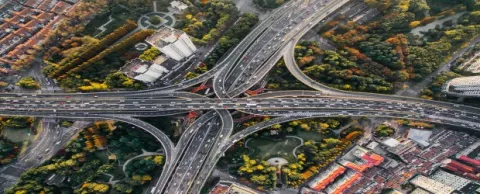
The small city of Alba Iulia in central Romania is undergoing big changes, attracting the most European funds in the country for projects that are helping to seriously boost tourism. First on the list: the restoration of the 18th century Alba Carolina citadel. Twenty projects alone were devoted to rejuvenating the tourist attraction, and now the city is using the rest of its regional development funding to improve infrastructure, building roads, bike paths and additional tourist attractions. As the city slowly grows in size, with a population increasing from 60,000 to nearly 74,000 over the past decade, the former capital of the Principality of Transylvania is not only looking to draw tourists, it’s looking to become Romania’s first smart city.-Bruno De Man
The start of a smart city
This year marks Romania’s Centenary and one of the ways the country is celebrating is by looking to the future, namely at new technologies that will help thrust cities like Alba Iulia into the smart spotlight. “We know that in order to become a smart city, Alba Iulia needs to invest a few hundred million euros in the infrastructure, in 10 to 15 years, but it also needs legislation and programs to support smart city development, a well-trained workforce…and a good collaboration with utilities, telecoms, transport or safety companies,” Alba Iulia city manager, Nicolaie Moldovan, was quoted saying to Mediafax news agency. Dozens of companies are stepping up and investing over one million euros in smart solutions like medical hotlines, digital education, WiFi hotspots, and virtual tours of the citadel.
As part of the Smart City Alba Iulia 2018 pilot project, 14 technologic solutions were introduced across the city over the past year. Together with Orange Romania, the city set up 600 sensors to create a digital infrastructure, which includes 4G WiFi and LoRaWAN networks. Now citizens and visitors can access WiFi from over 228 points of access, from the Alba Carolina citadel to public transport like buses. Over the past year as buses have adopted WiFi hotspots, 8% of citizens have already started using the service, averaging 1 TB of data in sessions, according to Orange. In addition, the city’s sensors are monitoring air quality and connecting with lighting and water, and a water management system is underway. The public lighting management system has already helped save 50-70% in electricity consumption, and, according to a city hall study with Siemens, smart technologies in Alba Iulia could offer benefits of up to €532 million over the next three decades. With the addition of these technologies, the historic city is well on its way to achieving smart status while serving as a model for the rest of Romania and central Europe to follow.



